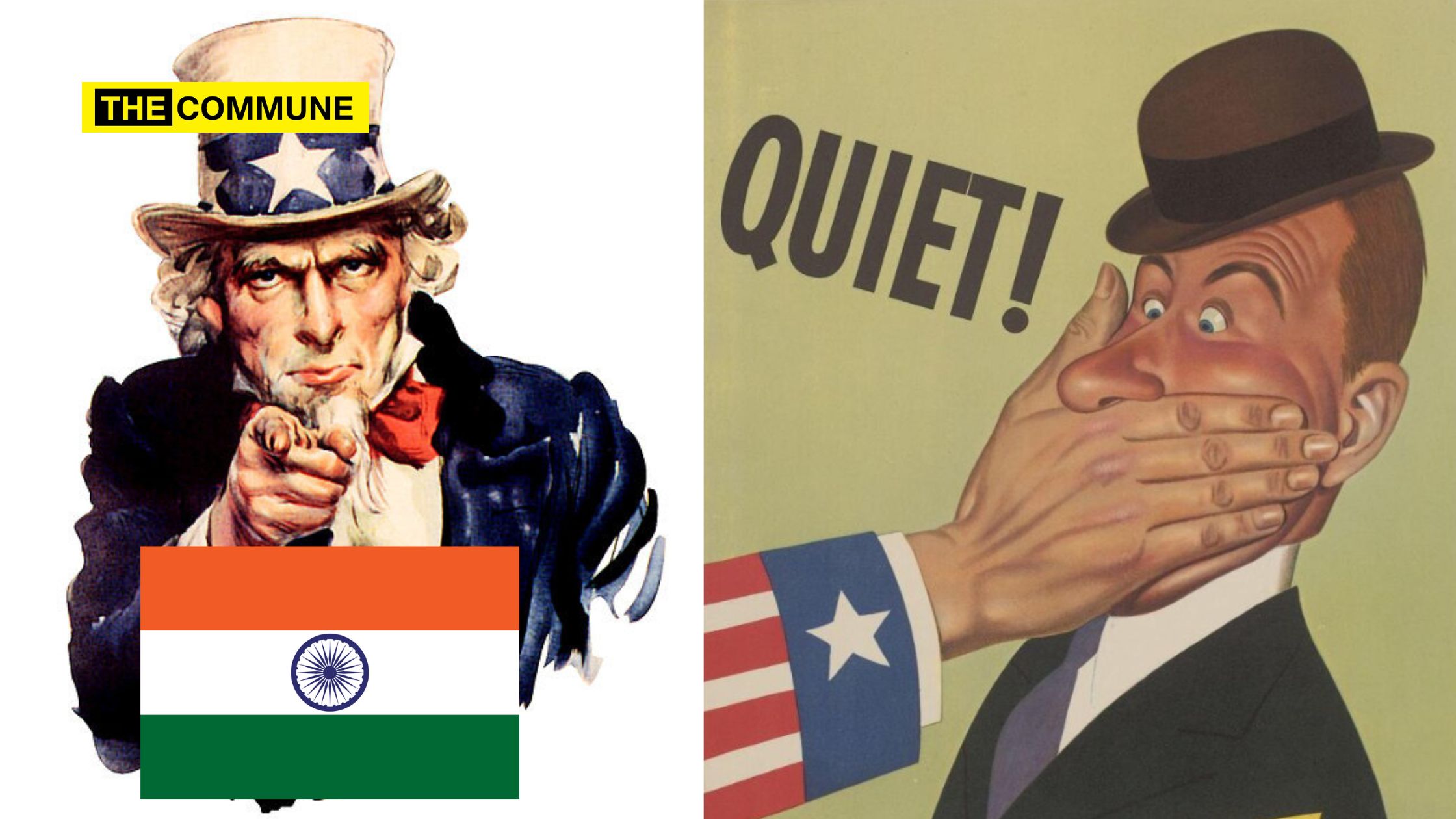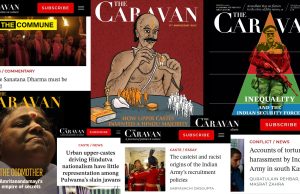
As Western nations criticize India for so-called threats to free speech and democracy, they should be scrutinised for their restrictive practices. From the UK’s crackdown on social media posts and France’s arrest of Telegram founder Pavel Durov to Ireland’s controversial “hate speech” bill and Brazil’s ban on X, these countries reveal a troubling pattern of censorship.
Amid these developments, the stark contrast between Western criticisms and their internal policies raises questions about the state of free expression and democracy worldwide.
The West has always looked down upon India. They ranked India lower than abysmal countries like Pakistan and Afghanistan when it comes to free speech, democracy, human rights, happiness index, etc. It is clear that the world, particularly the West, is unhappy with India’s rapid rise to become a reckoning force. The rising popularity of PM Narendra Modi worldwide, along with India’s emergence as a leader of the Global South, and the de-dollarisation, among others, added to this western bitterness. Hence, there were repeated attacks under the garb of free speech concerns.
However, western media looks at the other side when it comes to the suppression of free speech in their lands. Here are a few examples of Western countries curbing FoE and also ‘calling out’ India for suppressing free speech, democracy in danger, and minorities undergoing ethnic cleansing – pot calling the kettle black scenario.
UK Arrests Citizens In Large Numbers for Sharing Memes
The United Kingdom is increasingly arresting individuals for social media posts, particularly in the wake of a mass stabbing that fueled anti-immigrant sentiment and sparked riots. The incident, involving Axel Rudakubana, who killed three young girls and injured others at a Taylor Swift-themed dance class, led to widespread outrage. Information quickly spread online, claiming that Rudakubana was an illegal immigrant – he was born in the UK to parents who had migrated from Rwanda. The UK government responded by arresting individuals who shared these claims or posted content deemed to incite violence or hatred.
The Crown Prosecution Service (CPS) has been particularly active, warning the public to “think before you post,” emphasizing that online content that incites violence or hatred can lead to prosecution. Several arrests have been made, including a 55-year-old woman who shared misinformation and a man who posted a satirical TikTok video. Citizens criticized this crackdown for stifling free speech and creating a climate of fear in this Western nation, where expressing dissenting opinions can lead to arrest.
The UK seems to be moving towards an authoritarian approach to governance, where free speech is increasingly restricted. The government acts as a “truth detector,” punishing those who disagree with official narratives or spread misinformation. What happened to Free Speech in this western country?
France Arrests Telegram Founder
Pavel Durov, the founder of Telegram, was arrested by French intelligence at Le Bourget Airport in Paris. His detention is reportedly linked to accusations including money laundering, aiding terrorism, and other criminal activities. However, the primary focus of the EU’s concern is Telegram’s encrypted messaging, which authorities argue hinders criminal investigations. This arrest represents an assault on free speech and digital privacy. Despite allegations, Telegram has actively moderated content in the EU, including blocking access to certain channels that violate local laws.
The arrest appears to be a move to pressure Durov into cooperating with government surveillance demands despite Telegram’s adherence to content moderation. This situation highlights a broader conflict between state surveillance and individual privacy rights, with the arrest seen as a tactic to force Telegram to compromise its encryption standards, which are central to user privacy. There are also allegations that French authorities are using the arrest to exert pressure on Durov and gain access to Telegram’s encrypted communications, which has significant implications for free speech and the right to privacy. The arrest is controversial because it contrasts with the EU’s Digital Services Act, which focuses on economic penalties for platforms rather than personal criminal liability.
Ireland Proposes “Hate Speech” Bill
The proposed Irish “hate speech” bill aims to criminalize the possession of content deemed likely to incite hatred, including memes and photos stored on personal devices. If passed, the law could result in up to five years of jail time for individuals with such material. The bill lacks a clear definition of “hate,” making it a tool for broad censorship rather than targeting specific harmful speech. This bill could lead to subjective and arbitrary enforcement, stifling free speech and creating a culture of fear.
The law’s vagueness is particularly concerning as it leaves the door open for criminalizing a wide range of expressions, including what some may consider mere jokes or unpopular opinions. The bill’s inclusion of “protected characteristics” also raises concerns that even misgendering someone could result in criminal prosecution. Authorities would have the power to search personal devices for potentially prosecutable content, a move many see as reminiscent of dystopian censorship.
The Irish bill goes further than similar laws in other countries, making it one of the most extreme examples of state-driven censorship of free speech in a modern Western democracy.
Brazil Forces X To Close
X, formerly known as Twitter, announced on 17 August 2024 that it would close its operations in Brazil due to escalating tensions with Brazilian Supreme Court Justice Alexandre de Moraes. The conflict began in April when X was forced to block certain accounts in Brazil as part of an investigation into “digital militias” accused of spreading misinformation. However, X claimed it was unaware of the specific reasons behind the orders and which posts violated Brazilian law.
X owner Elon Musk criticized the legal orders as excessively harsh, labelling them “the most draconian demands of any country.”
Musk stated that Brazil ordered the platform to suspend accounts of sitting members of parliament and journalists, actions that X had to pretend were based on its own rules.
The situation escalated when Musk announced plans to reactivate the blocked accounts, prompting de Moraes to include Musk in an investigation and accuse him of obstruction of justice and incitement to crime. De Moraes also threatened to arrest an X legal representative in Brazil and imposed a daily fine if X did not comply with the court orders.
In response, X shut down its operations in Brazil, though the platform will remain accessible to users.
Australia Tries To Censor X Posts
Australia’s government, led by the eSafety Commissioner, ordered X to remove footage of a terrorist attack in Sydney from its platform, prompting a heated response from Elon Musk. The incident involved a teenager charged with terrorism after attacking an Assyrian priest, and the video of the event was circulating on X. Australia’s Federal Court mandated the removal of this content, citing the graphic nature of the video and its potential to incite violence and community tensions.
X initially complied by blocking the content for Australian users, but the eSafety Commissioner, Julie Inman Grant, demanded a global takedown, arguing that platforms should do everything practical to minimize harm to Australians. Musk strongly criticized this directive, arguing that allowing any country to censor content globally could lead to excessive control over the entire internet. He vowed to challenge the ruling in court, claiming it was an overreach of Australian authority and an attack on free speech.
While Australian authorities emphasized the need to protect citizens from harmful content, Musk focused on defending free speech and resisting what he viewed as unjustified global censorship. The incident also underscored concerns about the spread of violent content on social media and the responsibilities of platforms in managing such content.
EU Tries To Blackmail Elon Musk
The European Union is pressuring Elon Musk’s social media platform X to reduce the amplification of “harmful content,” particularly ahead of significant events like former President Donald Trump’s appearance on X Spaces.
NEW: The European Union is trying to influence the American election by pressuring Elon Musk to not amplify "harmful content" ahead of Trump's X Spaces event.
A new statement released by European Commissioner Thierry Breton called on Musk to put "effective mitigation measures"… pic.twitter.com/0xkjkEw0zG
— Collin Rugg (@CollinRugg) August 12, 2024
European Commissioner Thierry Breton emphasized that while freedom of expression should be protected, platforms like X must implement measures to mitigate the spread of content that could incite violence or disorder. This stance is part of the broader enforcement of the Digital Services Act (DSA), a new EU law regulating online content to prevent misinformation and harmful material.
Musk responded critically, accusing the EU of trying to impose unlawful censorship and claimed the European Commission had proposed a “secret deal” to censor content on X, which the platform refused quietly. The European Commission denied these allegations, asserting that any settlement process is part of established regulatory procedures and that the DSA applies to all platforms equally. X faces potential fines of up to 6% of its global revenue for non-compliance with the DSA, and the platform’s recent behaviour has raised concerns about its commitment to these regulations. The ongoing conflict highlights the tension between global internet platforms and regional regulatory bodies trying to enforce content moderation standards.
Biden DOJ Jails Man For Anti-Hillary Meme
Douglass Mackey, an internet personality known as “Ricky Vaughn,” was sentenced to seven months in prison for his role in a conspiracy to interfere with the 2016 U.S. presidential election by disseminating misleading memes. Mackey’s memes falsely encouraged Hillary Clinton supporters to “vote” via text message, a method that was not legally valid. His intent, according to prosecutors, was to suppress voter turnout among certain groups, mainly targeting Black and Hispanic voters, as well as women.
Mackey, who had a significant following on X with over 58,000 followers, conspired with others to create and distribute these deceptive messages. The memes, which mimicked official Clinton campaign ads in appearance, were intended to mislead voters into thinking they had cast a valid vote via text, thereby preventing them from voting in person.
The U.S. Department of Justice (DOJ) charged Mackey with conspiracy against rights, a charge traditionally used in civil rights cases to protect individuals’ constitutional rights, including the right to vote. The DOJ argued that Mackey’s actions deliberately disenfranchised voters, undermining the democratic process.
Mackey’s defence argued that his actions were protected under free speech laws and that there was no evidence that anyone was prevented from voting due to his memes. However, the jury found Mackey guilty, leading to his sentencing.
Maduro Blocks Access To X
Venezuelan President Nicolás Maduro imposed a 10-day ban on the social media platform X amid growing unrest following a disputed presidential election. Maduro accused X’s owner, Elon Musk, of inciting hatred and fascism, leading him to sign a resolution from Venezuela’s telecommunications regulator, Conatel, to temporarily take X out of circulation. This action followed widespread accusations of election fraud after Maduro was declared the winner with 51.2% of the votes. At the same time, opposition candidate Edmundo González Urrutia, who had been leading in polls, was reported to have received 44.2%.
The election results sparked nationwide protests, with the opposition claiming victory and warning of a potential mass exodus if Maduro remained in power. The foreign ministers of Brazil, Colombia, and Mexico urged Venezuela’s National Electoral Council to publish the vote tallies. This ban on X adds to Maduro’s ongoing confrontation with big tech, as he had also encouraged citizens to abandon Meta-owned WhatsApp in favour of other messaging apps like Telegram or WeChat.
These are some of the developed nations in the Western world that curb free speech in their country while criticising India for the imaginary “threat to Freedom of Expression and democracy.” For the world to function correctly and flourish, we need honest nations and leaders who do not poke their noses into other countries (especially developing ones).
Subscribe to our Telegram, WhatsApp, and Instagram channels and get the best stories of the day delivered to you personally.




